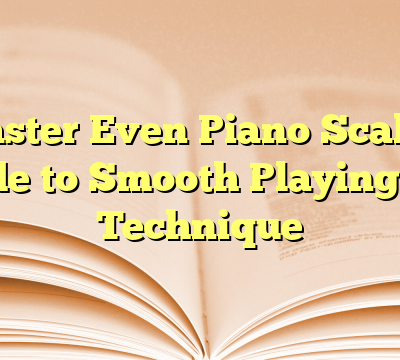Stepping into the world of music, especially for beginners, can be both thrilling and a tad overwhelming. With an array of instruments to choose from, it's the arranger keyboard that often stands out as the perfect starting point. They're versatile, packed with features, and designed to grow with you as you master the art of music.
Choosing the best arranger keyboard for beginners isn't just about finding an instrument. It's about discovering a companion that makes learning fun, engaging, and incredibly rewarding. Whether it's the variety of sounds, the built-in learning tools, or the ability to record your first masterpiece, the right arranger keyboard can open up a universe of musical possibilities. Let's dive into what makes these keyboards a top pick for those just starting their musical journey.
Understanding Arranger Keyboards
When beginners embark on their musical journey, they often encounter a range of instruments, each with its unique charm. However, arranger keyboards stand out not just for their versatility but for how they cater to those new to music. At its core, an arranger keyboard is a powerful instrument designed to be both a solo entertainer's dream and a beginner's best friend. It's teeming with features that simplify the learning process, making music creation accessible and fun.
Arranger keyboards distinguish themselves with their built-in accompaniment features. These instruments are equipped with a variety of rhythms and styles that can back a player in real-time, providing a full band experience even when one is playing solo. From pop ballads to rock grooves, these keyboards have settings that mimic a wide range of musical genres. This diversity allows learners to explore different styles, fostering a deeper understanding and appreciation of music.
Another standout feature of arranger keyboards is their intuitive design. Manufacturers often incorporate educational tools directly into these instruments. For example, built-in lessons, easy-to-follow lighting guide systems, and step-by-step song teaching functionalities are common. These features are especially beneficial for beginners, as they offer a structured learning path that can accelerate skill development. Additionally, many arranger keyboards feature large, user-friendly screens that display chords, notation, and even lyrics, further enhancing the learning experience.
The ability to record and playback is also a significant advantage of arranger keyboards. Beginners can easily record their performances, a tool that's invaluable for practice and improvement. By listening to their recordings, they can identify areas of strength and those needing improvement. Moreover, recording tracks is not only beneficial for self-assessment but also ignites creativity, encouraging users to experiment with composing their music.
Lastly, the range of sounds and voices offered by arranger keyboards is unparalleled. They house a vast library of instrument voices, from pianos and strings to synthesizers and drums. This variety is particularly appealing to beginners, as it allows them to experiment with different sounds and find their musical voice. The ability to layer these sounds or split the keyboard into different zones further expands the creative possibilities.
| Feature | Benefit |
|---|---|
| Built-in Rhythms | Provides a full band experience |
| Intuitive Design | Facilitates learning with educational tools |
| Record and Playback | Allows for self-assessment and ignites creativity |
Key Considerations for Beginners

When venturing into the world of music with an arranger keyboard, it's crucial for beginners to consider several factors that can significantly influence their learning experience and enjoyment of the instrument. Understanding these key considerations can help novices make an informed decision, ensuring they choose an arranger keyboard that best suits their needs and aspirations.
Ease of Use
One of the primary considerations for beginners is the ease of use. Arranger keyboards come with a variety of features and functions, but for someone just starting out, a straightforward interface with intuitive controls is essential. Beginners should look for keyboards that offer:
- A user-friendly layout
- Clear labeling of buttons and functions
- A well-organized screen display
These features can help reduce the learning curve, allowing beginners to focus more on making music and less on navigating complex menus.
Educational Features
Learning to play the keyboard is an exciting journey, and having the right educational tools can make all the difference. Beginners should consider arranger keyboards that include:
- Built-in lessons covering basics to advanced techniques
- Interactive learning modes that provide real-time feedback
- Accompaniment features that adjust to the player's skill level
These educational features not only enhance the learning experience but also keep beginners engaged and motivated throughout their musical journey.
Sound Quality and Variety
The quality and variety of sounds an arranger keyboard can produce are vital for inspiring creativity and keeping practice sessions enjoyable. Beginners should look for keyboards that offer:
- High-quality sound samples
- A wide range of instrument voices and styles
Having access to a broad selection of sounds allows beginners to experiment with different music genres and find their unique musical style.
Price
While price should not be the sole factor in choosing an arranger keyboard, it's certainly a consideration for beginners who may not be ready to invest heavily in a new hobby. They should seek a balance between cost and quality, focusing on keyboards that offer:
- Good value for the price
- Essential features without overwhelming complexity
Considering these factors can help beginners find an arranger keyboard that fits their budget while still providing a rewarding and enjoyable learning experience.
| Factor | Why It's Important |
|---|---|
| Ease of Use | Reduces learning curve, allowing focus on music |
| Educational Features | Enhances learning, keeps users engaged |
| Sound Quality | Inspires creativity, makes practice enjoyable |
| Price |
Top Features to Look For

When beginners step into the vast world of music with the aim of selecting an arranger keyboard, the myriad of features can be overwhelming. However, focusing on a handful of essential aspects can simplify the decision-making process and ensure they get the most out of their musical journey.
First and foremost, ease of use is paramount. Beginners should look for keyboards that offer intuitive interfaces and straightforward navigation. This means clear labeling, accessible menus, and ideally, a touchscreen for seamless operation. Instruments that require a steep learning curve just to perform basic functions may deter novices from persisting with their practice.
Another critical feature to consider is the range of built-in rhythms and accompaniments. These are the backbone of an arranger keyboard, allowing users to explore different musical styles and genres. Beginners will benefit from a wide selection that includes everything from pop and rock to jazz and classical. This diversity not only enriches the learning experience but also encourages exploration and creativity.
Educational tools cannot be overstated in their importance. Keyboards equipped with built-in lessons, chord dictionaries, and interactive learning modes provide invaluable resources for beginners. Some models even offer connectivity with smartphones and tablets, enabling access to online tutorials and apps that enhance the learning process.
The quality of sound reproduction is another critical factor. Beginners might not initially distinguish subtle sound nuances, but high-quality sound samples make a significant difference in motivation and enjoyment. Arranger keyboards that feature realistic instrument voices ensure that every practice session is both rewarding and stimulating.
Connectivity options such as USB and MIDI ports offer additional versatility. They allow beginners to connect their keyboards to computers and other devices, facilitating music recording, composition, and even software-based learning. This feature opens up a world of possibilities for expanding musical knowledge and skills.
Lastly, the inclusion of a built-in recording function can be incredibly beneficial. It enables learners to record their sessions, which is crucial for tracking progress, self-evaluation, and sharing performances with others. This feature can serve as a powerful motivational tool, encouraging continuous improvement.
- Ease of Use: Intuitive interfaces, touchscreen for seamless operation.
- Built-in Rhythms and Accompaniments: Wide selection across genres.
- Educational Tools: Lessons, chord dictionaries, interactive modes.
- Sound Quality: High-quality sound samples and realistic instrument voices.
- Connectivity: USB, MIDI ports for recording and software learning.
- Recording Function:
Best Arranger Keyboards for Beginners

Choosing the right arranger keyboard as a beginner can be a daunting task given the plethora of options available in the market. However, some models stand out due to their user-friendly design, comprehensive features, and excellent value for money. This section highlights a few arranger keyboards that are ideal for beginners, keeping in mind the crucial aspects discussed earlier, such as ease of use, built-in rhythms, educational tools, sound quality, and connectivity options.
Yamaha PSR-EW310
The Yamaha PSR-EW310 is renowned for its impressive sound quality and expansive library of voices and styles. It offers:
- A 76-key touch response keyboard
- 622 high-quality voices
- 205 auto-accompaniment styles
- Built-in lessons and a duo mode for simultaneous learning
Its USB to HOST audio and MIDI connectivity allows for straightforward recording and music production, making it a great tool for beginners eager to track their progress.
Casio CT-X700
Casio's CT-X700 is another excellent choice for novices. Highlights include:
- A 61-key touch response keyboard
- AiX Sound Source technology for rich, realistic tones
- 600 built-in tones and 195 rhythms
- Integrated step-up lesson system
With a USB port for MIDI connections and a music rest for tablets and smartphones, the CT-X700 presents an all-in-one solution for beginners.
Korg EK-50
The Korg EK-50 is designed for immediate musical gratification with its auto-accompaniment function that lets even novices sound like seasoned professionals. This keyboard features:
- A 61-key keyboard with velocity sensitivity
- Over 702 sounds and 280 styles
- Onboard recording and song playback features
- Battery operation for portability
Its intuitive interface and versatile features ensure a smooth learning curve for budding musicians.
Roland E-X20A
The Roland E-X20A combines premium sounds with great affordability, making it a solid choice for beginners. Its specifications include:
- Authentic sounds and rhythms from various genres
- A 61-note keyboard with high-quality Roland voices
- Battery operation for mobile use
- Easy to use and carry for young musicians
It offers beginners a straightforward way to start their musical journey with confidence.
Conclusion
Choosing the right arranger keyboard as a beginner can significantly influence one's musical journey. With options like the Yamaha PSR-EW310, Casio CT-X700, Korg EK-50, and Roland E-X20A, beginners have a solid lineup to consider. Each of these keyboards brings something unique to the table, from touch response keys and a vast array of sounds to comprehensive connectivity options for further exploration. They're not just instruments; they're gateways to mastering music, offering a blend of fun and education. So whether it's diving into different genres or connecting with other devices for music production, there's an arranger keyboard out there that's the perfect fit for every beginner.
Harlan Kilstein began playing piano during covid with no piano background at all. He taught himself how to play learning what to do and what not to do.
Today he's an advanced intermediate player and can help you grow in your skills because he learned all this on his own.








